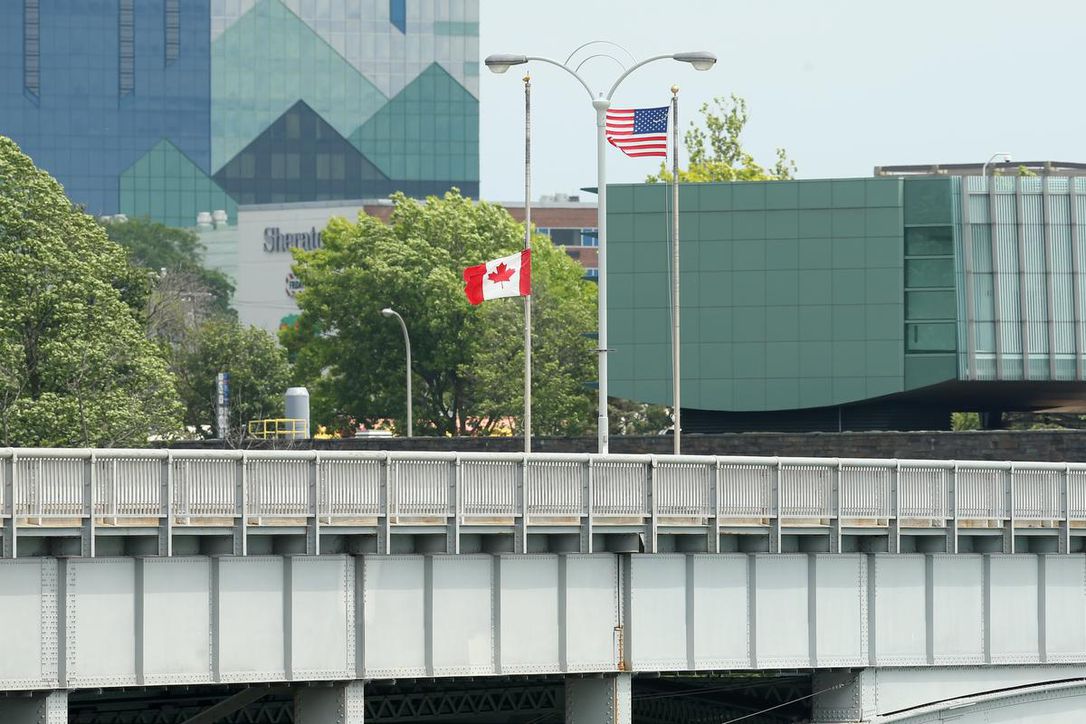June 21, 2021, Toronto Star — New travel rules will make it easier to go abroad this summer — but businesses say it could devastate Canada’s tourism sector

For the past few weeks, Frank Daoust had been looking forward to welcoming American tourists back to his fishing lodge some time this summer to reel in pickerel, pike and bass. Now, he’s unsure if it will happen at all.
“I had a guy on the line this morning who was deciding between us and a lodge in Maine. He’s been up here before and loved it. It killed me, but I had to tell him to take the sure thing,” said Daoust, owner of Memquisit Lodge, in Monetville, Ont.
Daoust and other tourism businesses were frustrated Monday after the federal government announced it was relaxing COVID border restrictions July 5; Canadians and permanent residents who’ve been fully vaccinated with both shots can return to the country from abroad without being quarantined. But the border will still be closed to non-Canadians for non-essential travel, including the mostly American tourists vital to his business. No timetable, or precise criteria for how the government would decide when tourists could enter, were announced.
For an industry already reeling from months of pandemic-related restrictions, it felt like an especially cruel blow. Even domestic travellers who gave the industry a trickle of revenue last summer now have other options.
“They’re peeling away some of the Canadians we had last year, and Americans still can’t come in. It could be even worse this year,” said Daoust, who estimated his lodge is only 40 per cent full. Americans usually make up about 50 per cent of his annual revenue, Daoust said.
The news comes at a time when COVID-related subsidies from federal and provincial governments are winding down, and businesses have taken on more debt just to survive, said Chris Bloore, president of the Travel Industry Association of Ontario.
“This is f-ing devastating. It’s absolutely a gut punch,” said Bloore. According to a TIAO member survey, tourism companies in this province have taken on an average debt load “into the six figures,” Bloore said.
“At the beginning of this, people would dip into their RRSP, or their kids’ educational savings just to keep things running. Now, they’re deep in debt, and some of them might not survive because of this,” Bloore said.
Bloore said Monday’s lack of details made it all but impossible for struggling businesses to plan ahead.
“No-one’s saying ‘open the floodgates.’ There are ways to do this safely. But at least give us a timetable or a plan. Right now, people can’t even plan on when to hire staff or how many supplies they’ll need,” said Bloore.
The Canadian Chamber of Commerce and the country’s biggest air industry association also blasted the partial reopening, saying it ignored a report last month from the federal government’s own expert scientific panel.
“While other countries like France have already changed their measures to welcome Canadian travellers, we still have no plan or clear time frame in Canada,” fumed Mike McNaney, president of the National Airlines Council of Canada, which represents Air Canada, Air Transat and WestJet, in a written statement.
The partial reopening doesn’t go far enough, said CCC president Perrin Beatty.
“Today’s announcement will helpfully make it easier for Canadians who travel abroad for business purposes, but continues to prevent visitors who want to come to Canada. Canadian communities whose jobs and livelihoods rely on tourism … will continue to feel the impact of these excessive restrictions,” Beatty said in a written statement.
The impact of another lost summer, when tourism businesses bring in the lion’s share of their annual revenue, will have financial impacts long past the end of the pandemic, said Daoust.
“This will be the second summer in a row we’ve had to turn Americans away. If they go somewhere else and have a good experience, that could affect our bookings in future years, too,” Daoust said.
But while the Canadian tourism industry was cringing at the federal announcement, it was a good news day across the Peace Bridge in Buffalo.
“We’ve been waiting for this announcement. We really rely on Canadian travellers. It has been a difficult 18 months or so,” said Patrick Kaler, CEO of Visit BuffaloNiagara, who estimated that 40 per cent of tourists to the region are Canadian.
The tourism industry, said Kaler, typically adds $1.9 billion (U.S.) annually to the economy of Erie County, which includes Buffalo.
Still, Kaler added, Buffalo hotels, restaurants and bars aren’t exactly celebrating their cross-border neighbours’ misfortune.
“We know it’s been even harder on the Canadian side for their tourism-related businesses for the past year and a half with the Canadian restrictions. I miss being able to get away to Niagara-on-the-Lake and Toronto and other parts of Ontario,” said Kaler.


/https://www.thestar.com/content/dam/thestar/business/2021/06/21/new-travel-rules-make-it-easier-to-vacation-in-other-countries-this-summer-but-businesses-say-that-could-devastate-canadas-tourism-sector/frank_daoust_turn_pic.jpg)